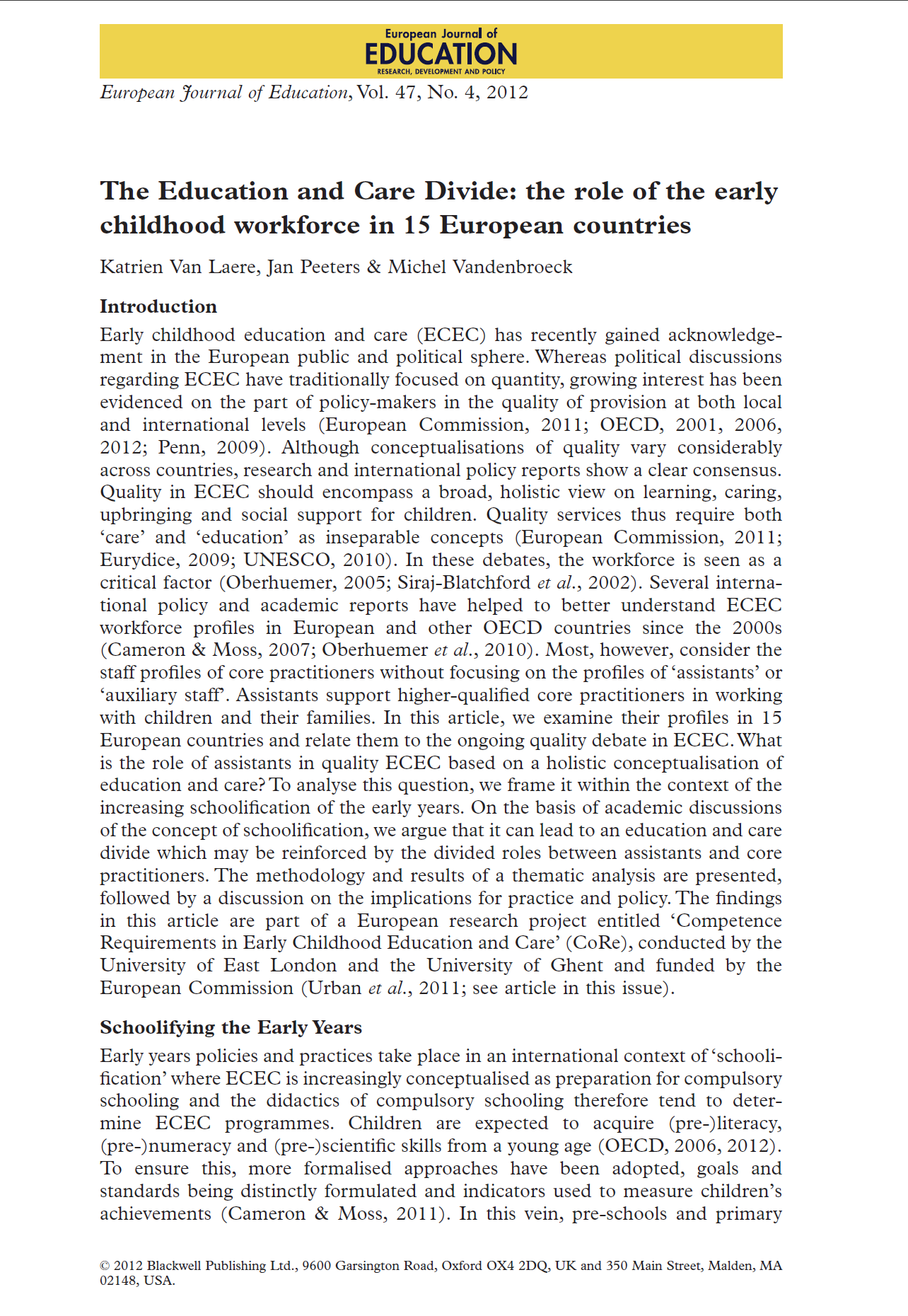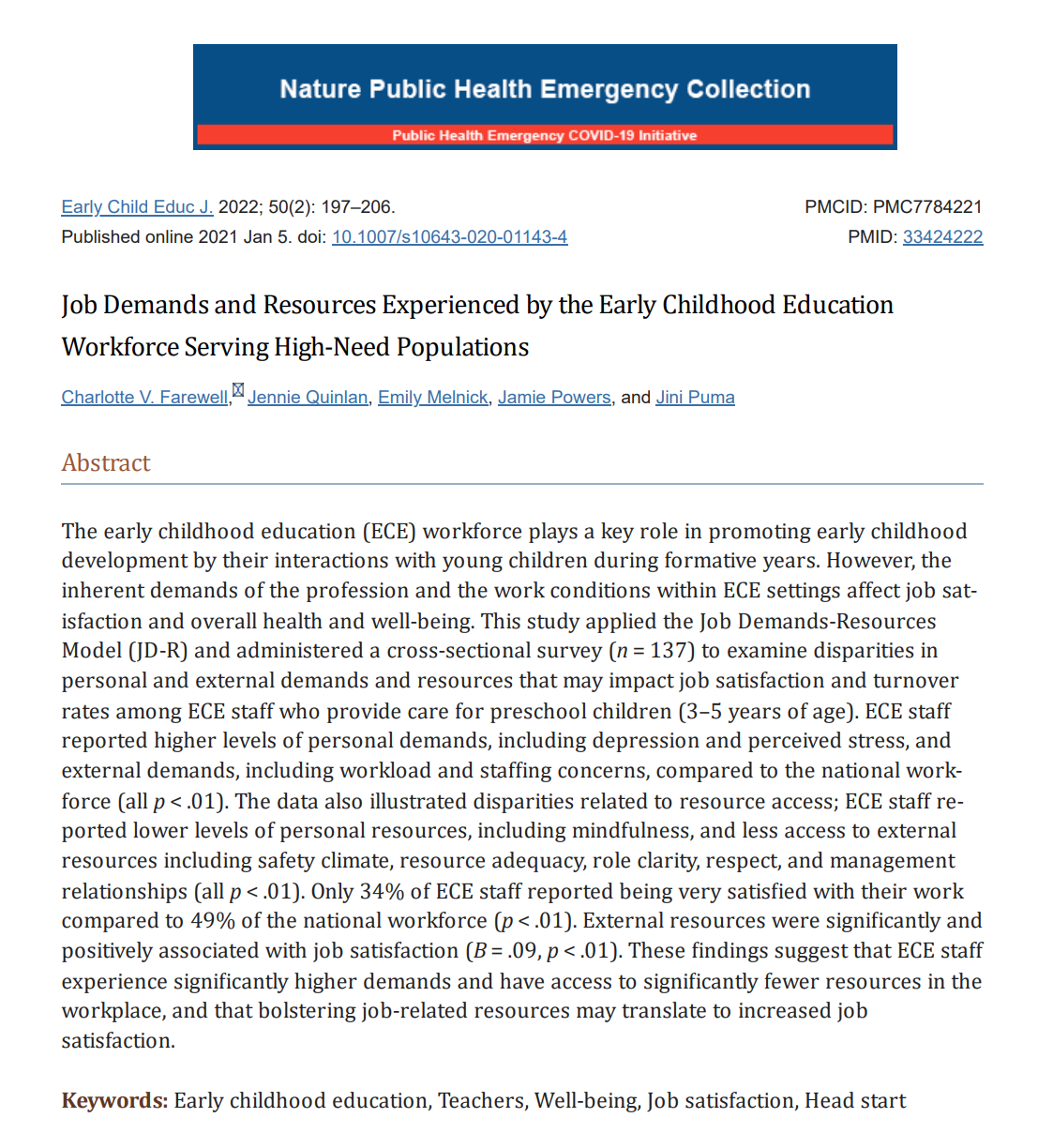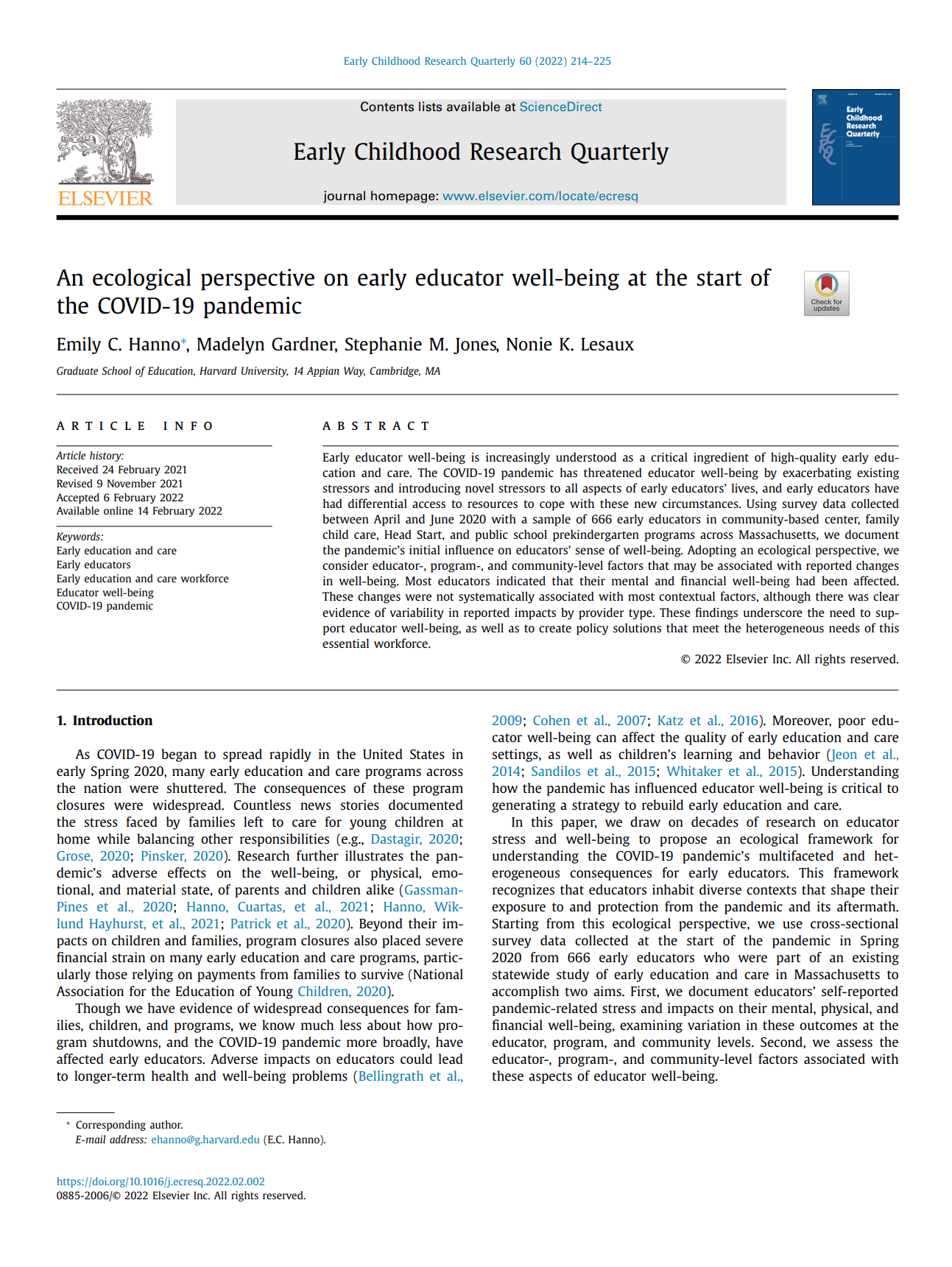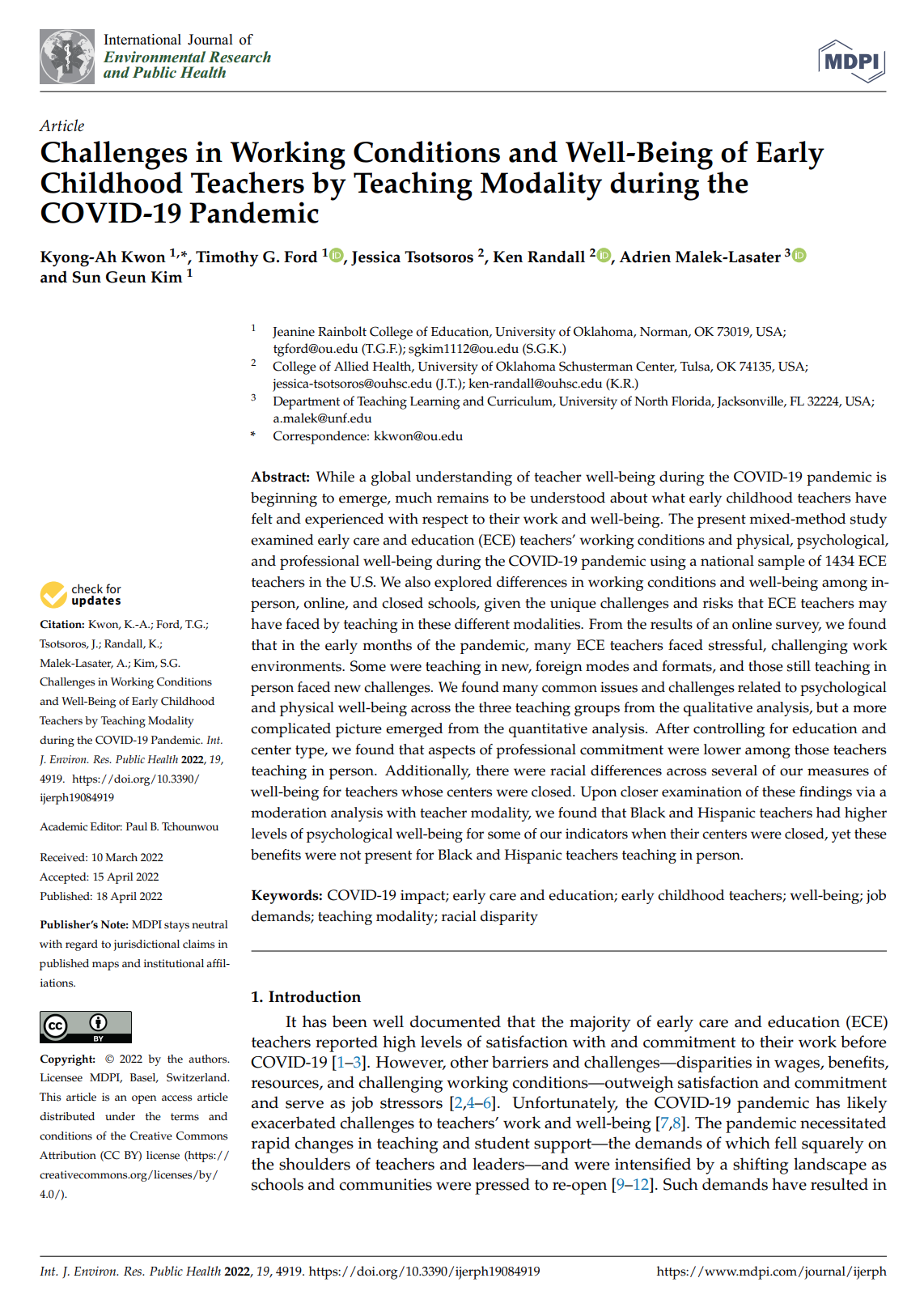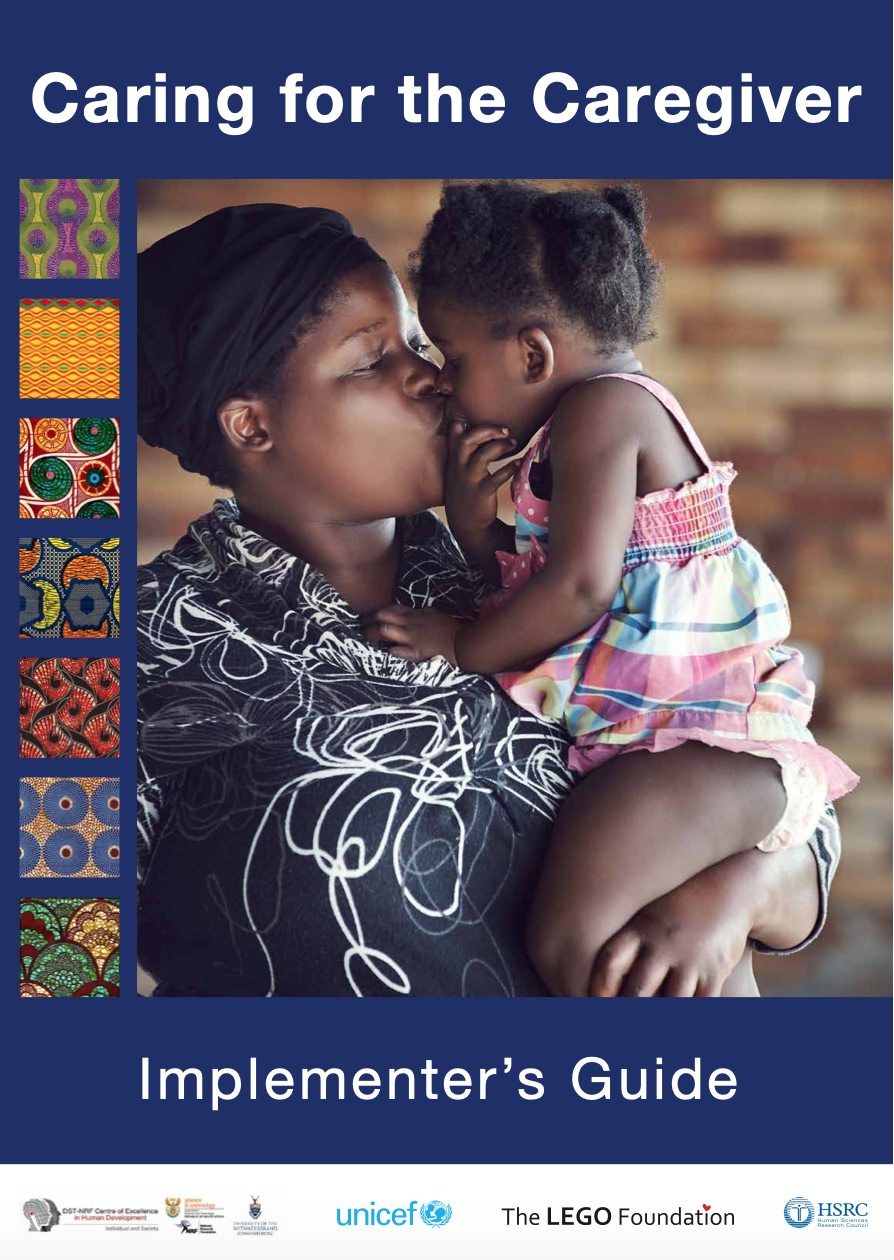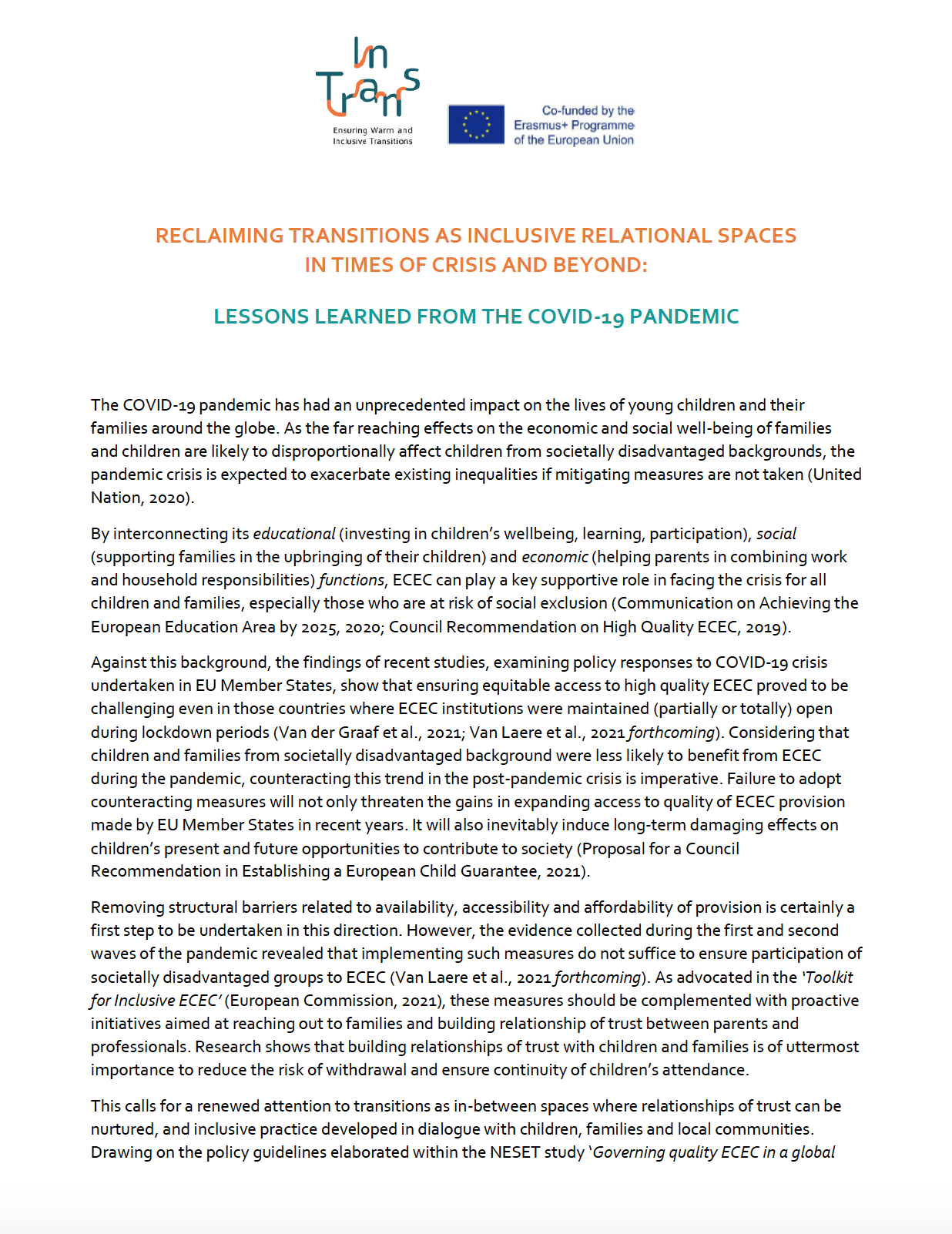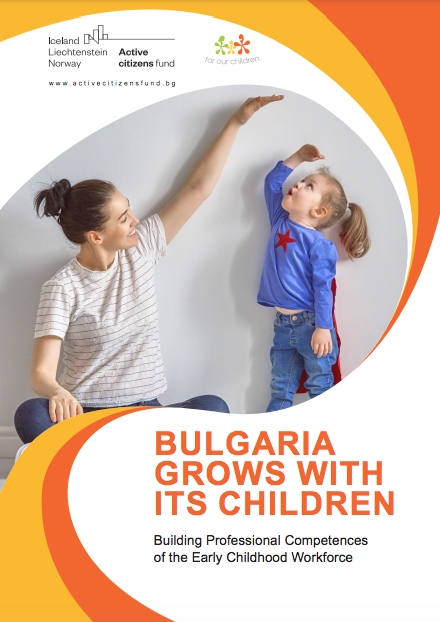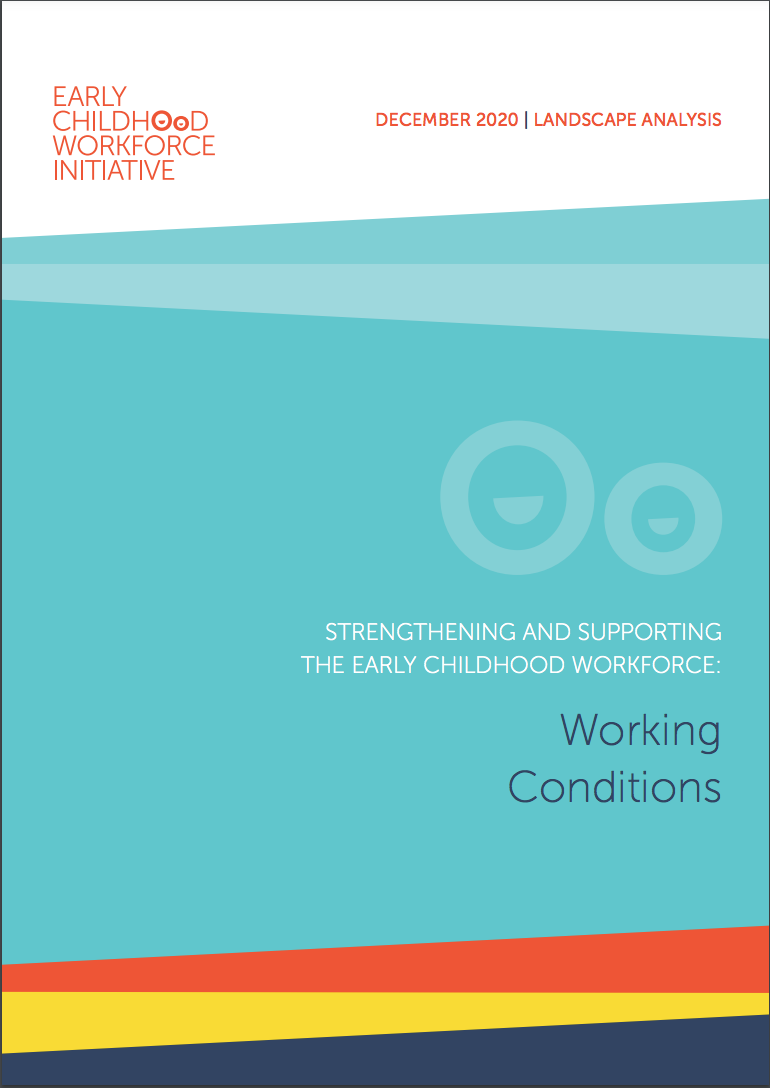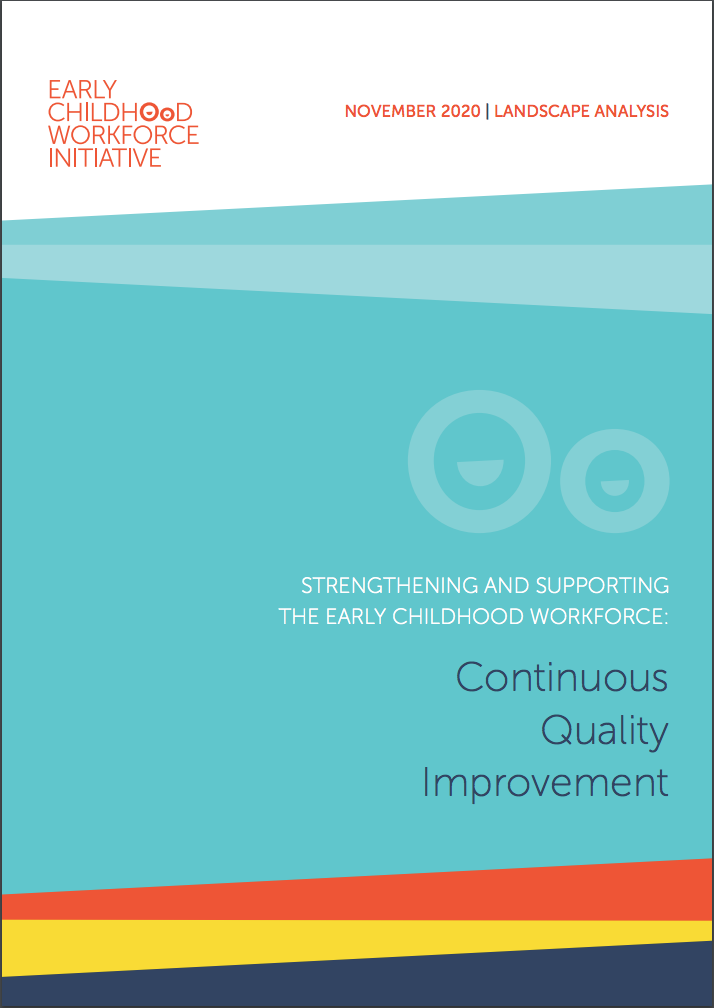Summary:
While a global understanding of teacher well-being during the COVID-19 pandemic is beginning to emerge, much remains to be understood about what early childhood teachers have felt and experienced with respect to their work and well-being. The present mixed-method study examined early care and education (ECE) teachers’ working conditions and physical, psychological, and professional well-being during the COVID-19 pandemic using a national sample of 1434 ECE teachers in the U.S. We also explored differences in working conditions and well-being among in-person, online, and closed schools, given the unique challenges and risks that ECE teachers may have faced by teaching in these different modalities. From the results of an online survey, we found that in the early months of the pandemic, many ECE teachers faced stressful, challenging work environments. Some were teaching in new, foreign modes and formats, and those still teaching in person faced new challenges. We found many common issues and challenges related to psychological and physical well-being across the three teaching groups from the qualitative analysis, but a more complicated picture emerged from the quantitative analysis. After controlling for education and center type, we found that aspects of professional commitment were lower among those teachers teaching in person. Additionally, there were racial differences across several of our measures of well-being for teachers whose centers were closed. Upon closer examination of these findings via a moderation analysis with teacher modality, we found that Black and Hispanic teachers had higher levels of psychological well-being for some of our indicators when their centers were closed, yet these benefits were not present for Black and Hispanic teachers teaching in person.
Keywords: COVID-19 impact; early care and education; early childhood teachers; well-being; job demands; teaching modality; racial disparity
Authors:
Kyong-Ah Kwon, Timothy G. Ford, Jessica Tsotsoros, Ken Randall, Adrien Malek-Lasater and Sun Geun Kim
Publication:
International Journal of Environmental Research and Public Health
Year of Publication:
2022
